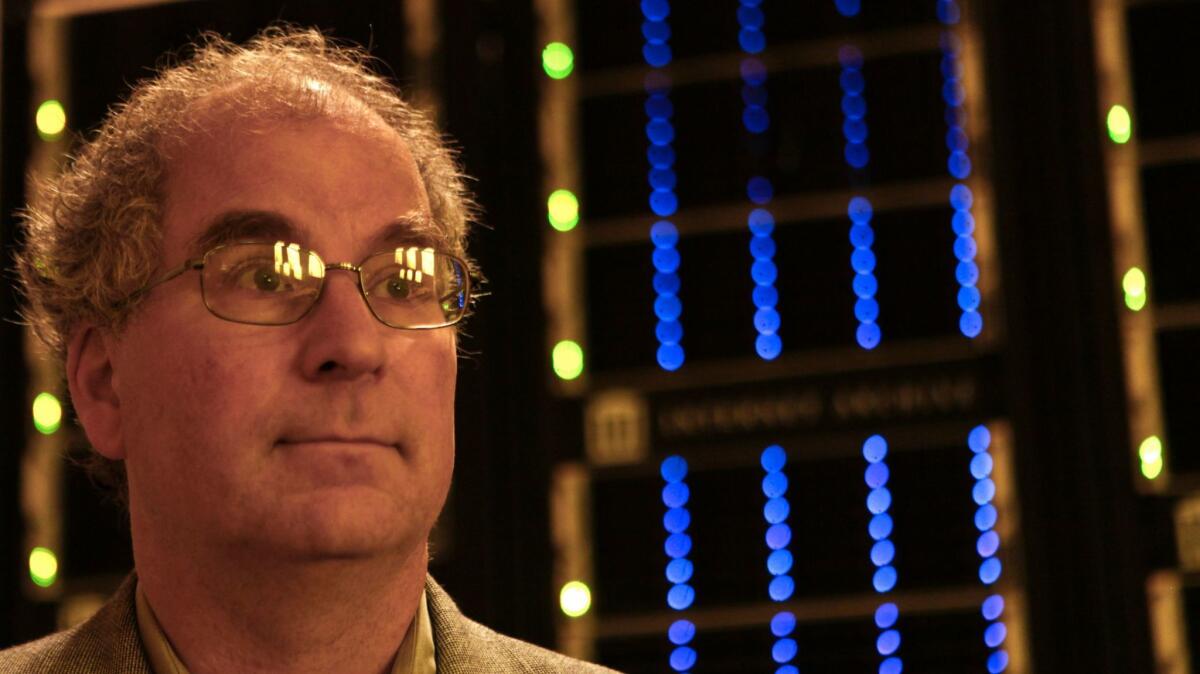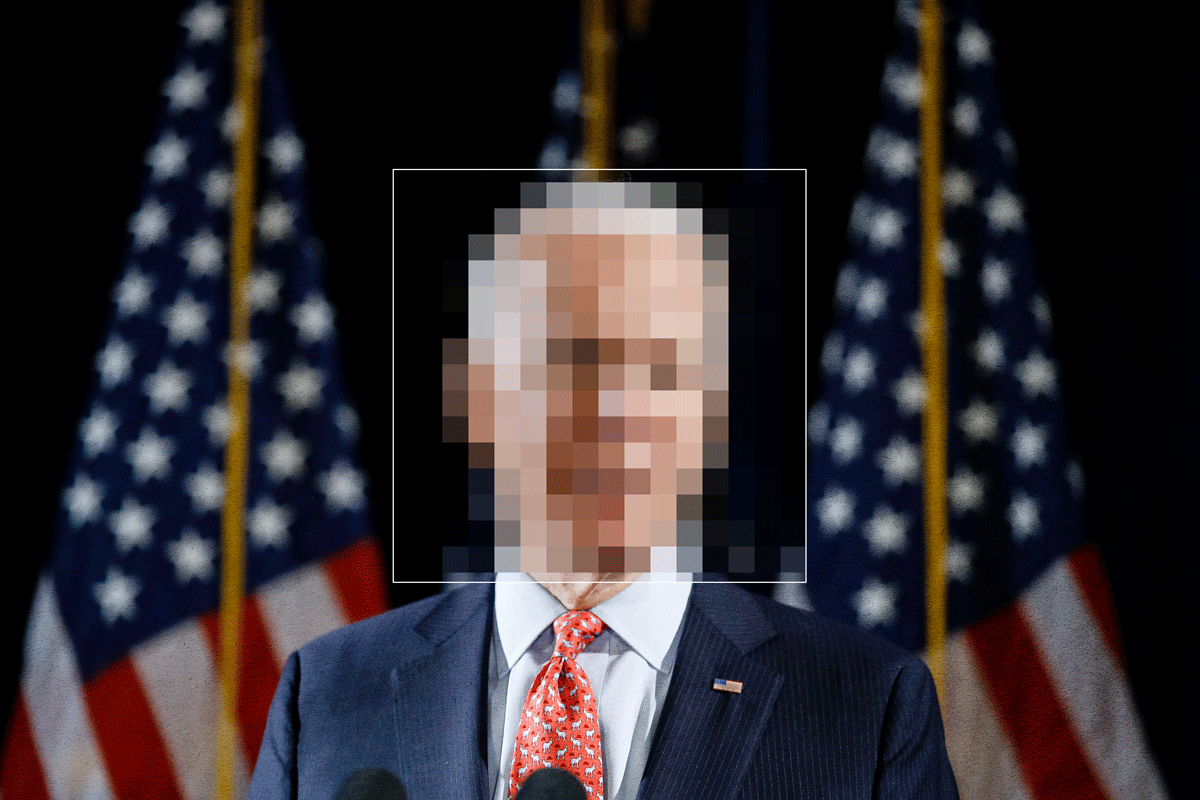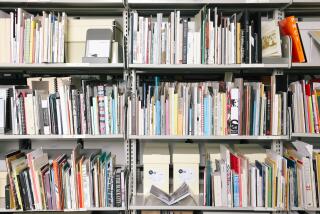Column: Trump’s attacks on free speech and the open Internet send a huge web archive fleeing to Canada

Popular interest in fleeing to Canada after the election of Donald Trump may have ebbed since a surge of inquiries crashed Canada’s immigration website on election night. But one Internet advocate and entrepreneur is still treating the idea seriously, and taking serious steps to follow through.
He’s Brewster Kahle, founder of the San Francisco-based Internet Archive. Kahle’s indispensable service maintains copies of 279 billion web pages, 2.2 million films and videos, 2.5 million audio recordings and 3 million digital books, among other items such as software and television programs.
We think it’s prudent at this point to at least take candidate Trump — now President-elect Trump — at his word.
— Brewster Kahle, founder and chairman of the Internet Archive
Upon Trump’s election, Kahle says, he and his staff mined their own TV archive to examine what he had said during his campaign about freedom of the press and the Internet.
What we found,” Kahle told me, “were words of warning. We think it’s prudent at this point to at least take candidate Trump — now President-elect Trump — at his word.” Consequently, the Internet Archive has stepped up its plans to back up its entire data hoard in Canada, out of reach of what might be efforts under a Trump administration to block public access to the material. He’s seeking donations to cover the estimated $5-million cost of the project by Jan. 20, Inauguration Day.
Kahle, who founded the Internet Archive in 1996 and serves as its unpaid chairman, had grounds to be concerned. Among the nuggets retrieved, as he explained in a FAQ on the Archive’s blog, were these:
-- A Trump quote from a Dec. 8, 2015, rally: “We have to go see Bill Gates and a lot of different people that really understand what is happening. We have to talk to them, maybe in certain areas, closing that Internet up in some way. Some of you will say, “Oh, freedom of speech, freedom of speech.” These are foolish people. … We have got to maybe do something with the Internet because they [terrorists] are recruiting by the thousands.”

-- A rant about planning “to open up our libel laws” to attack newspapers. Newspapers are “totally protected,” he said, but “we’re going to have people sue you like you’ve never been sued before.”
These declarations may reflect ignorance or uninterest in legal precedent or the history and nature of the Internet, but that’s immaterial, given the power vested in the president’s hands and the hostility to hard science and inconvenient factual information emanating from the GOP leadership in Congress.
Kahle is not alone in expressing uneasiness about Trump’s attitude toward public access to information, online and otherwise. The American Library Assn. suffered a firestorm of criticism from its member librarians after publishing a post-election news release headlined, “ALA offers expertise, resources to incoming administration and Congress.”
ALA President Julie Todaro followed up with an apology for a statement she conceded could be “interpreted as capitulating to and normalizing the incoming administration.” She reiterated the organization’s commitment to its “core values” of “free access, intellectual freedom, privacy and confidentiality,” which she acknowledged are “at odds with messaging or positions taken by the incoming administration.”
Added ALA President-elect James G. Neal, Columbia University’s librarian emeritus: “You can’t have an effective democracy unless you have access to government information, and people accessing information should be able to do it in private or confidentially, without the risk of censorship.”
Kahle said the Canada backup is part of the Internet Archive’s program to create several copies of its material in locations other than its Bay Area servers. “If you’re running an operation designed for the long term,” he told me, “the best thing you can do is make copies. If the Library of Alexandria had made copies, we wouldn’t have lost half the manuscripts of Archimedes.” The library of Alexandria, Egypt, was perhaps the greatest storehouse of Western knowledge when it was burned by zealots two millenniums ago.
Partial backups of the Internet Archive already exist in Alexandria and Amsterdam, and plans for a Canadian backup were underway in collaboration with the University of Toronto and the University of Alberta, which were already major contributors of public-domain digital material to the Archive. Initially, the goal is to copy that material onto the universities’ own servers, and ultimately to create a full backup residing on servers somewhere in Canada. That won’t be a small job: the Archive already comprises 26 petabytes of data. (A petabyte is 1 million gigabytes or 1 billion megabytes.)
The choice of a location wasn’t random, the Internet Archive says, but reflects strong user protections in Canada, including stringent regulations protecting users’ privacy.
“The history of libraries is one of loss,” Kahle said. “Libraries like ours are susceptible to different fault lines: earthquakes, legal regimes, institutional failure.” All these threats confront the Internet Archive, but the latter two are bulking larger every day.
Keep up to date with Michael Hiltzik. Follow @hiltzikm on Twitter, see his Facebook page, or email michael.hiltzik@latimes.com.
Return to Michael Hiltzik’s blog.







